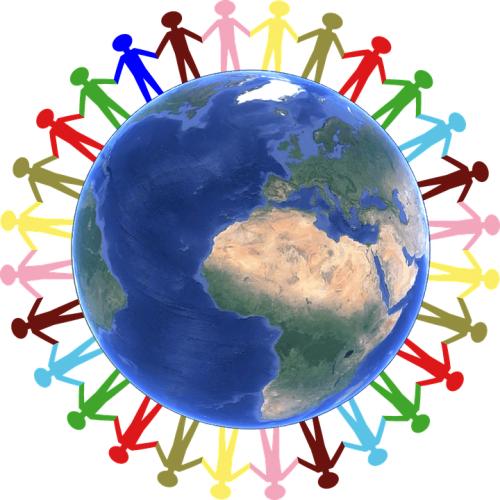
The perception about NGOs and their work has begun to shift since the 1990s. Driven both by internal and external pressures, NGOs are being increasingly plunged into the ‘NGOization’ process. It’s a trend within the NGO’s structural construction that has produced a shift from broad, horizontal organizations to more professionalized, vertical roles (Lang, 2012).
NGOs that once ‘engaged with’ political and social issues are now ‘talking about’ them (Lang, 2012). Although it highly depends on the historical context of the societies (Mojab, 2009), this trend is widely found within all democratic societies, and is typically motivated by colossal funding from several international organizations (Lang, 2012).
Before delving into the journey of NGOs from activism to advocacy, let’s take a minute to clarify that civil society and NGOs are not interchangeable concepts. While sometimes it’s difficult to differentiate them, Feldman argues that civil societies, in most cases, have demands or interests that can’t be found in NGOs. In addition, there might be relations of contracting directions, with NGOs working through top-down relations and civil society often engaging with bottom-up ones. The primary difference lies in the fact that NGOs have an increasingly solid and intense relationship with the state as they’ve become a part of the power structure. This implies that NGOs have become political actors that are embedded within an established system (Feldman, 1997).
Trends Towards NGOization
Kapoor and Choudhry (2013) believe that institutionalization, professionalization, demobilization, and depoliticization are the factors that influence the NGOization trend. However, Lang (2012) argues that bureaucratization, institutionalization, and professionalization are the key variables.
These processes are highly related to adaptations of the NGO and its members to the public policy language, a trend that has been occurring with dramatically rising speed and intensity. Its evolution can be seen by observing employee structures and tax declarations within the organization.
Institutionalization mainly occurs in three directions: through the opportunities offered by policies, such as consultancy, through organization’s structure, and through the increased porosity of members migrating from NGOs to formal political institutions (Lang, 2012). The trends reinstate the close proximity between the state and NGOs, with NGOs ceasing to merely be seen as external entities as they advance towards becoming actors that are part of the official decision-making process (Ungsuchawal, 2016).
NGOization has led to several observable changes in the processes of the organization. They enjoy novelties such as increased individualization of authority and power, increased cooperation control, curation of a structured legislative framework, adoption of competitive perspectives when recruiting staff, growth in the instrumentalization of work relationships, division of labor, and creation of hierarchical structures, and salaries (Lang, 2012).
NGOization causes the organization to refocus their operations on driving specific funds or results, rather than shared or ethical values, making them become more technocratic in their ethos. Creighton & Harwood (2009) argue that NGOs rather become ‘colonized’ by the government’s ways of conducting businesses to survive or achieve access to funds through positive political associations.

NGOization: The Journey of NGOs From Activism to Advocacy
As one of the critical consequences of NGOization, the shift from activism to advocacy is based on a less multidisciplinary and more result-oriented approach, along with the shift in the shape of mobilization when there’s a greater collaboration with the authorities (Paternotte, 2016).
There’s a ‘perceived altruism’ that is often associated with NGOs due to NGOization. History reveals that NGOs have always been perceived to be highly altruistic and morally correct institutions. However, NGOization has turned tables. NGOs have deviated from ‘committing to a specific issue’ to merely ‘talking about that specific issue’ (Goldsworthy & Morris, 2008). It has also given rise to elitism, which further leads to greater institutionalization and professionalization if the NGO is to survive.
NGOization is a trend that is found on a global scale with varying degrees, depending on the type of organization or country. It has reshaped the paradigms of social action and translated them into political changes. Bureaucratization, professionalization, institutionalization, demobilization, and depoliticization have led to structural changes that affect how the social demand may be elaborated or perceived. This has primarily caused the evident shift from activism to advocacy in ways that dictate how mobilizations are to be developed and how responses are given to the concerns of the society by institutions that are looked upon by people as a vehicle for real change.
About The Author
The author is a human rights activist who has extensive experience working with NGOs. He is particularly interested in highlighting the roles of NGOs and how they’re affected by power structures within western societies.